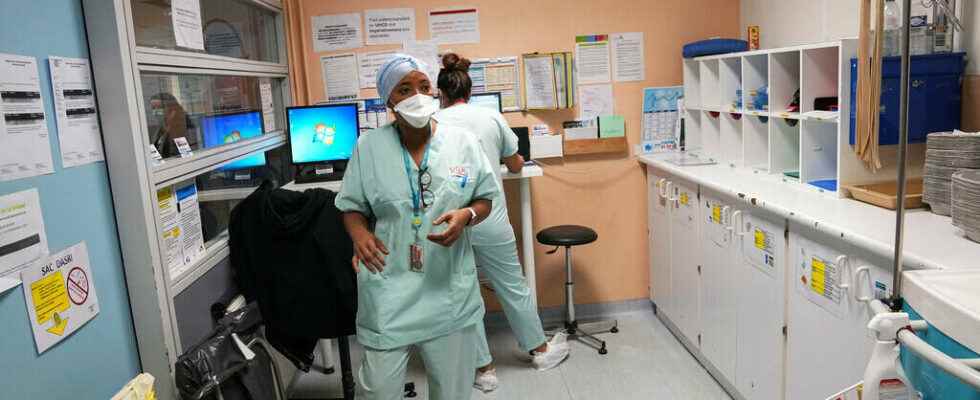In France, the emergency crisis continues. A study by the SAMU-Urgences de France union reveals that emergency room visits increased by 12% in July. A “flash mission” of around forty measures has been launched by the government to unclog emergency rooms during the summer. But for the nursing staff, they are insufficient.
At the beginning of July, to unclog hospital emergency services, the government had validated the proposals of the new Minister of Health François Braun. To spend the summer allow healthcare professionals to take vacations and avoid hospital service closures as much as possible, a “flash plan” of 41 temporary measures was adopted at the beginning of July by the government, such as the increase in wages for night shifts to strengthen the role of SAMU.
► Read also : the government resumes the 41 measures of the “flash mission” on the public hospital
► Also to listen : Emergencies in crisis in France
But the emergency services, the mobile emergency and resuscitation services (Smur) and the 15 “are in great difficulty operating”, alerted the president of the association Samu-Urgences France (SUdF) at the end of the week. , successor to François Braun at the head of this organization. According to the survey, 95% of emergency services say they encounter “significant problems with the availability of beds”, 90% difficulties with medical human resources and 89% lack of non-medical human resources”.
In fact, at the CHU d’Angers, the situation is still critical. In July, the hospital center received an average of 650 calls per day. A 20% increase compared to previous months. For Dominique Savary, emergency physician at the Angers University Hospital and member of the SAMU Urgences de France union, additional resources are needed, as he explains at the microphone ofAntoine Gallennefrom the Company department.
The flash mission recommended “regulating admissions”, either with “paramedical triage at the entrance” to emergencies, or by “systematic prior medical regulation” by the Samu telephone switchboard. But, points out Dominique Savary, in Maine-et-Loire, this filtering was not done for lack of means. ” In my department of Maine-et-Loire, we couldn’t do it, our Samu is already so stressed that we wouldn’t be able to regulate the calls of people who come to the emergency room.. »
According to this doctor, the flash mission is interesting but it comes too late. ” We can’t change things on June 30 for the coming summer, it should have been done in February or March. We regret that she arrived very late. »
For Agnès Ricard-Hibon, head of the SAMU 95 service in the Paris region, this flash mission is only a step. ” There was absolutely an urgent need to put in place right away, because the emergency services were in great difficulty this summer. But they are not sufficient, these are measures for the summer but which must be pursued through consultation and this is only the first stone, I would say. »
Among these measures: better remuneration for night work in the hospital, a financial incentive for city doctors who accept emergency appointments, the reinstatement of voluntary retired doctors, etc. “These levers make it possible to support new cooperation between professionals (…); to recognize the additional commitment of professionals to increase the care time available; to support the arduous nature of night work, particularly in hospitals,” declared François Braun in mid-July.
An evaluation of the measures of this flash mission will be made at the end of September to decide whether they will be extended after the summer.
► Also to listen : in France, the great exhaustion of interns in medicine
